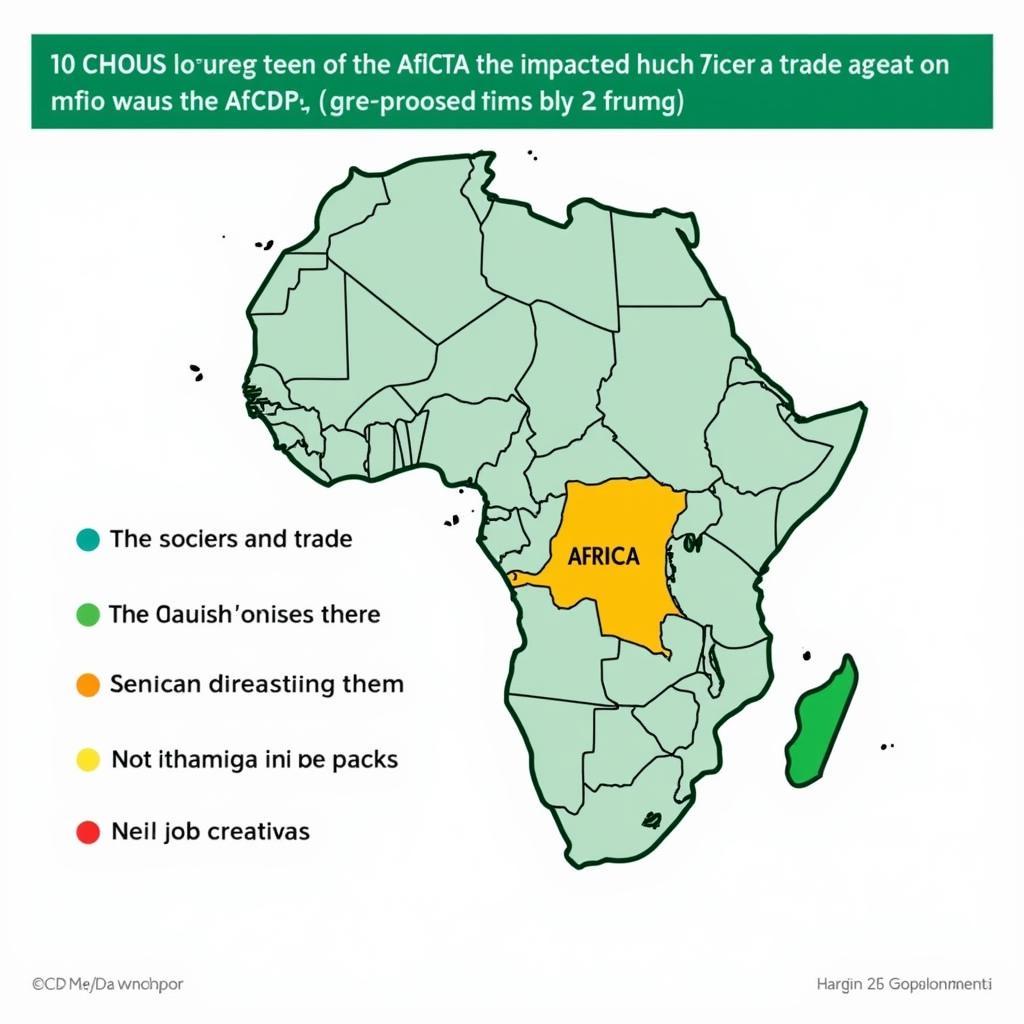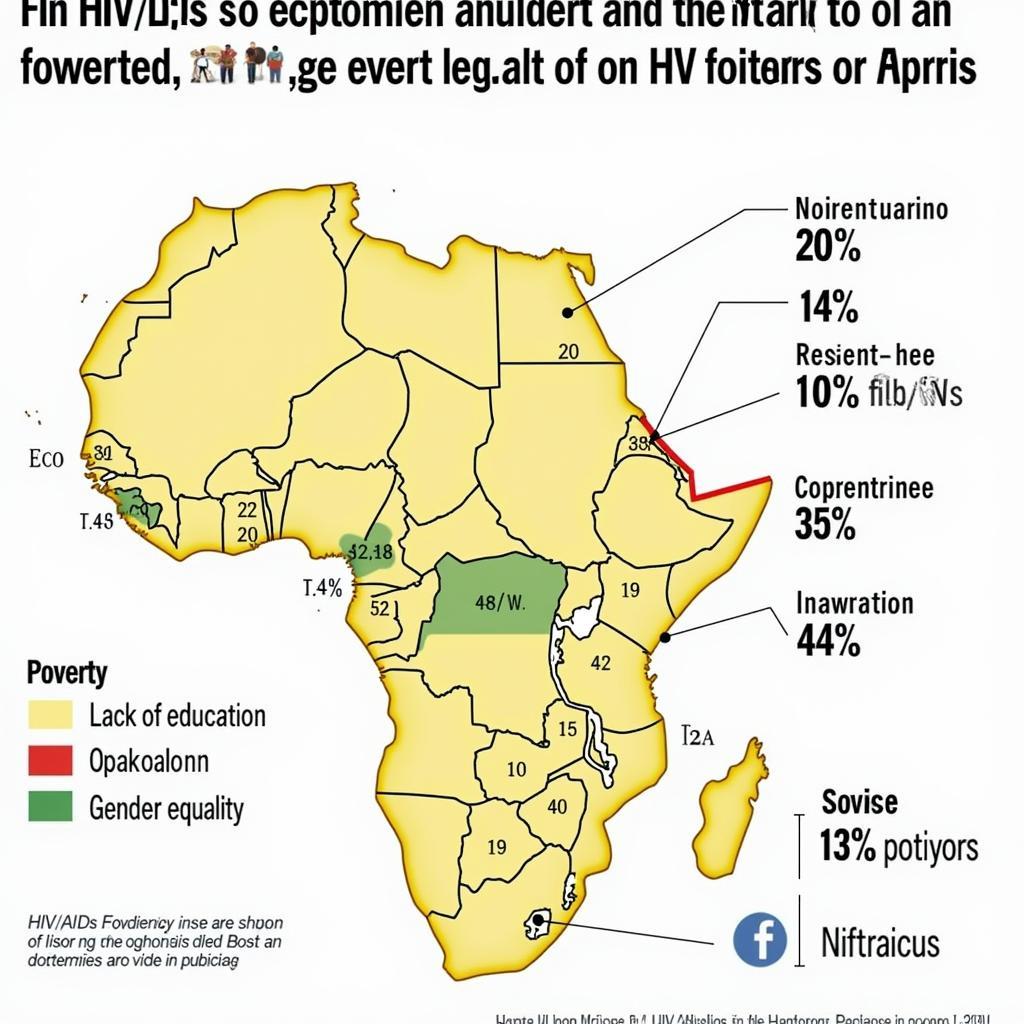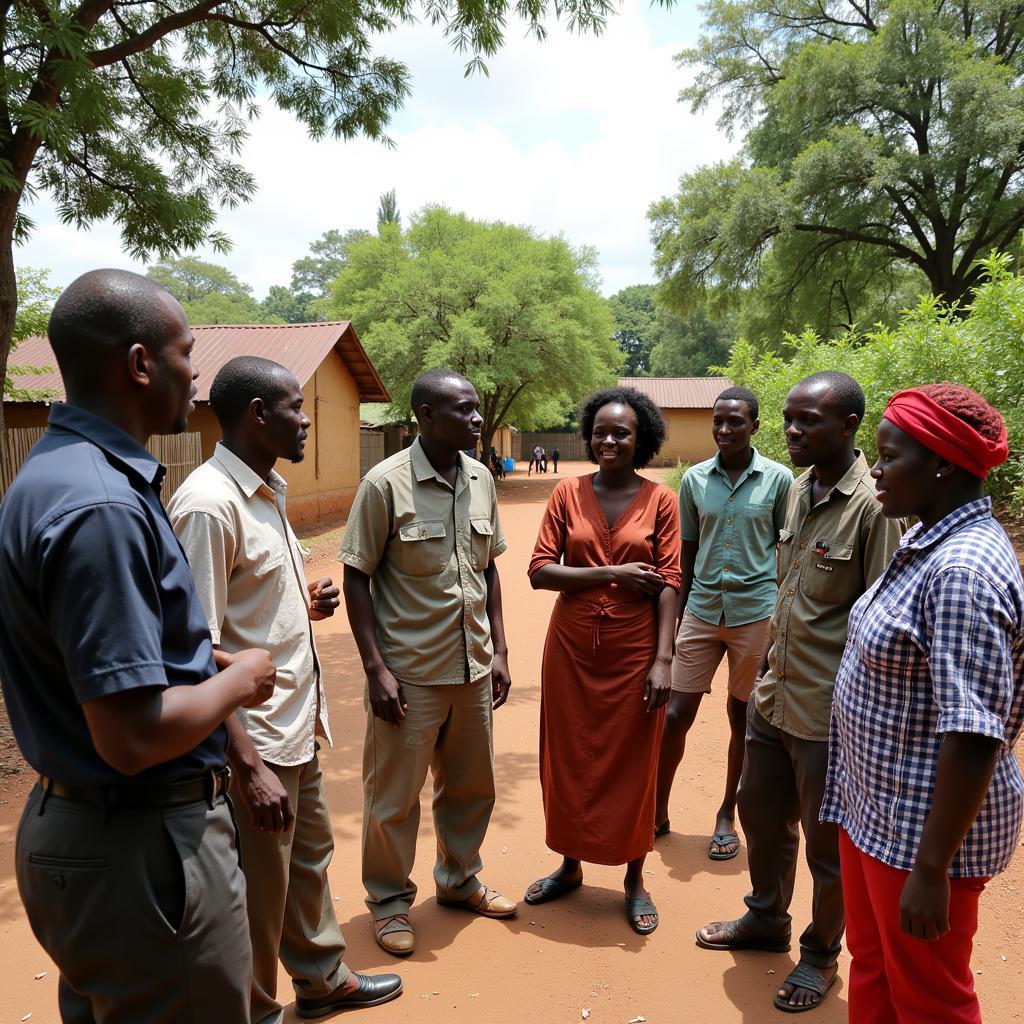Understanding the African Economic Co-operation Landscape
The African Economic Co-operation landscape is complex and multifaceted, encompassing various initiatives, organizations, and agreements aimed at boosting economic growth and development across the continent. This article delves into the intricacies of these collaborative efforts, exploring their history, challenges, and potential for transforming Africa’s economic future. african economic community
A Deep Dive into African Economic Co-operation: History and Evolution
African nations have long recognized the power of collaboration in driving economic progress. From early regional trade agreements to the establishment of continent-wide organizations, the journey of African economic co-operation has been marked by both successes and setbacks. The formation of the Organization of African Unity (OAU) in 1963 laid the groundwork for greater economic integration, which later evolved into the African Union (AU) in 2002. The AU, with its ambitious Agenda 2063, envisions a prosperous and integrated Africa.
Key Players in African Economic Co-operation
Several key players contribute to the intricate web of African economic co-operation. These include regional economic communities (RECs) like the Economic Community of West African States (ECOWAS), the Southern African Development Community (SADC), and the East African Community (EAC). These RECs play a crucial role in promoting regional integration by fostering trade, facilitating free movement of people, and harmonizing policies. Additionally, institutions like the African Development Bank (AfDB) provide vital financial and technical support to various development projects across the continent.
african economic community trading blocs
The Role of Regional Economic Communities (RECs)
RECs serve as building blocks for continental integration. They focus on specific regions, addressing unique challenges and leveraging local opportunities. For example, ECOWAS has been instrumental in promoting peace and security in West Africa, while SADC has focused on infrastructure development and resource management in Southern Africa. These regional efforts contribute significantly to the broader goal of African economic co-operation.
Challenges and Opportunities in African Economic Co-operation
Despite significant progress, African economic co-operation still faces numerous challenges. These include infrastructure deficits, political instability, and bureaucratic hurdles. However, the continent also possesses immense potential for growth, driven by a young and dynamic population, abundant natural resources, and increasing technological adoption. Harnessing this potential requires addressing the existing challenges and fostering a more conducive environment for investment and innovation. “Overcoming infrastructure challenges is paramount for unlocking Africa’s economic potential,” says Dr. Akinwumi Adesina, President of the African Development Bank. “Investing in transport, energy, and communication networks will facilitate trade, create jobs, and empower communities.”
african economic community type of economic integration
What are the key obstacles to deeper economic integration?
Key obstacles include varying levels of economic development among countries, differing political priorities, and the need for stronger institutional frameworks. Addressing these issues is crucial for achieving the full potential of African economic co-operation.
How can technology drive economic transformation in Africa?
Technology can revolutionize various sectors, from agriculture to healthcare, by increasing efficiency, improving access to information, and connecting African businesses to global markets. Embracing digital innovation is essential for driving sustainable and inclusive economic growth.
The Future of African Economic Co-operation
The African Continental Free Trade Area (AfCFTA), which came into effect in 2021, represents a landmark achievement in the pursuit of African economic co-operation. By creating a single continental market for goods and services, the AfCFTA aims to boost intra-African trade, attract foreign investment, and accelerate industrial development. This ambitious initiative has the potential to transform Africa’s economic landscape and create new opportunities for businesses and individuals across the continent. “The AfCFTA is a game-changer,” notes economist Carlos Lopes, “It offers a unique opportunity to build a more integrated and prosperous Africa.”
 African Continental Free Trade Area Impact
African Continental Free Trade Area Impact
african economic community home page
Conclusion
African economic co-operation is a vital pathway to achieving sustainable development and prosperity on the continent. By strengthening regional integration, addressing existing challenges, and embracing new opportunities, African nations can unlock their full economic potential and create a brighter future for generations to come. The African economic co-operation landscape continues to evolve, and its success depends on the collective efforts of governments, businesses, and individuals.
FAQ
- What is the African Union’s role in economic co-operation?
- How does the AfCFTA benefit African businesses?
- What are the main challenges facing regional economic communities?
- How can foreign investment contribute to African economic growth?
- What is the importance of infrastructure development in Africa?
- How can technology be leveraged to promote economic development?
- What are the long-term goals of African economic co-operation?
Need assistance? Contact us 24/7: Phone: +255768904061, Email: kaka.mag@gmail.com, or visit us at Mbarali DC Mawindi, Kangaga, Tanzania.

